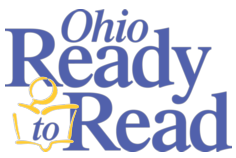Libraries are connectors within each community, matching people with information and resources that meet their needs. Public libraries can support their communities by maintaining strong community partnerships with parents and caregivers and with local schools. Use the ideas and resources in this section to build connections within your community and support student learning.
Empower Parents and Caregivers
Public libraries are open evenings, weekends, and summers. They are accessible to parents and caregivers whose work hours or other circumstances limit their ability to visit the school and communicate with teachers. Some ideas for supporting and engaging with parents and caregivers:
- Provide basic early literacy education for parents and caregivers. The public library can be a literacy lifeline for families not participating in early learning and development programs, and a solid supplemental service for families who are. Ohio Ready to Read has many free resources and supports for librarians.
- Learn all you can about Ohio's Learning Standards and other key topics in Ohio education, and be prepared to field questions from parents. Know where to refer them for further information, including the Ohio Department of Education & Workforce (ODEW) Parents Page.
- Involve parents and caregivers in library program planning, and solicit their suggestions for book purchases and service enhancements. You may have a Teen Advisory Group, but have you considered a Parent Advisory Group?
- Help parents understand the importance of informational text and how to select it.
- Model reading nonfiction at programs and in readers' advisory transactions, to encourage parents to read nonfiction with their children.
Resources:
National PTA Parents' Guides for Student Success
These simple, clear, free guides describe the basics of what children will learn in math and English language arts at each grade, and offer activities that parents can do to support their children's learning.
Collaborate with Your Schools
Building or strengthening a relationship with school library media specialists may be your single most effective strategy to support student learning. School librarians can:
- Help you translate the jargon
- Keep you informed about school events, assignments, and news
- Be a bridge for you between the library world and the school world.
If your local school does not have a library media specialist, your role in student learning is even more critical. Introduce yourself to the principal, reading specialist, classroom teachers - any teaching or administrative staff who are accessible to you - and start a conversation about collaborating.
Some ideas:
- Encourage educators to ask you for help in selecting materials (books, media, online) for their classes, and to tell you what materials are already on their syllabus.
- Develop booklists and resource guides, especially to support reading in the content areas, including science and social studies topics.
- Offer to pull teacher collections on topics of the teachers' choice.
- Provide educator library cards with expanded borrowing capacity and reduced fines.
- Offer book clubs for students and for teachers.
- Host a Book Look or other educational event for your local teachers.
- Ask to make a presentation at your school's teacher in-service day.
- Ask your library media specialist or an Ohio Educational Library Media Association (OELMA) leader near you to meet with your staff to discuss the public library's role in student learning. You might invite with several area libraries and schools for efficiency, reach, and networking benefits.
- Partner with the school to organize author visits.
- Ask to do summer reading visits to classrooms or assembly, and ask for opportunities to discuss summer reading with parents.
- Coordinate your summer library program with the school's summer programming.
- Create joint summer reading lists with the library media specialist or classroom teachers.
- Learn about INFOhio resources and how to share them with students in your public library.
- Offer to distribute school newsletters and other school communications at your library.
- Create a parent newsletter as a joint venture with the school.
